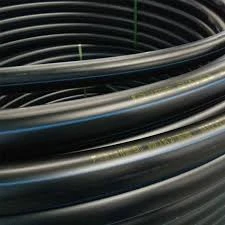Aug . 29, 2024 11:14 Back to list
High-Density Polyethylene (HDPE) Pipe Drip Irrigation System
The Benefits of HDPE Pipe in Drip Irrigation Systems
Drip irrigation is revolutionizing agriculture by promoting efficient water usage and enhancing crop yields. Among the various materials used for drip irrigation systems, High-Density Polyethylene (HDPE) pipes stand out due to their numerous benefits, durability, and environmental friendliness.
The Benefits of HDPE Pipe in Drip Irrigation Systems
Moreover, HDPE materials are lightweight yet incredibly strong, making them easy to handle and install. Farmers can transport and lay these pipes with minimal labor, reducing the time and cost associated with installation. The flexibility of HDPE also allows for easier navigation around obstacles in the field, minimizing the need for complex pathways and joints that can lead to leaks and inefficiencies.
hdpe pipe drip irrigation

Another noteworthy feature of HDPE pipes is their smooth inner surface, which enhances water flow and reduces blockage risks. This smoothness lowers friction loss, allowing for more efficient water distribution throughout the irrigation system. As a result, crops receive a consistent and adequate supply of water directly to their root zones, promoting optimal growth and reducing the likelihood of overwatering or water stress.
In addition to enhancing efficiency, HDPE pipes contribute to sustainability in agricultural practices. Their long-term durability and resistance to environmental factors reduce the need for frequent replacements, thus minimizing waste. Furthermore, the material's recyclability means that at the end of their life cycle, HDPE pipes can be repurposed for other applications, thereby supporting a circular economy.
The use of HDPE pipes in drip irrigation systems also aligns with water conservation efforts. With increasing concerns about water scarcity and the need for sustainable farming practices, drip irrigation powered by HDPE pipes can play a significant role in achieving these goals. By delivering water directly to plants at precise rates, this irrigation method minimizes evaporation and runoff, ensuring that every drop is used effectively.
In conclusion, HDPE pipes present a compelling choice for drip irrigation systems due to their durability, efficiency, and environmental benefits. They not only enhance water management and crop productivity but also contribute to sustainable agricultural practices. As farmers continue to seek innovative solutions to meet the challenges of modern agriculture, HDPE pipe technology will undoubtedly play a pivotal role in shaping the future of irrigation. Embracing these advancements can lead to more resilient farming systems that thrive amid changing climatic conditions and growing food demands.
-
HDPE Pipe Fittings: Durable, Leak-Proof Solutions
NewsAug.16,2025
-
Premium CPVC Sheet: High-Temp & Chemical Resistant Solutions
NewsAug.15,2025
-
Durable PPR Pipe for Hot & Cold Water Systems - Easy Install
NewsAug.14,2025
-
Durable HDPE Sheet | Versatile & Impact-Resistant Plastic
NewsAug.13,2025
-
Premium PVC Soft Sheets: Clear, Flexible & Durable
NewsAug.12,2025
-
Premium PVC Round Rods: Durable, Chemical Resistant, Easy to Machine
NewsAug.11,2025

